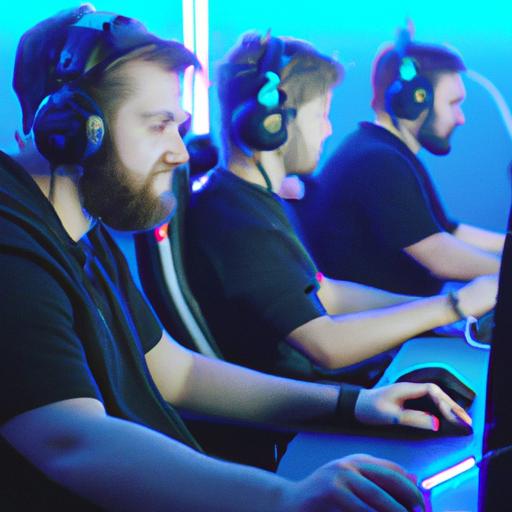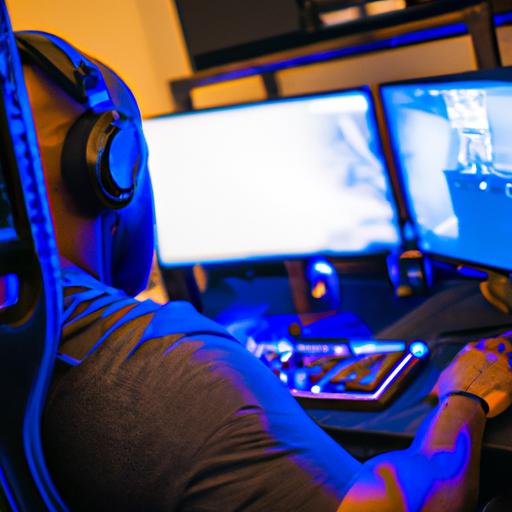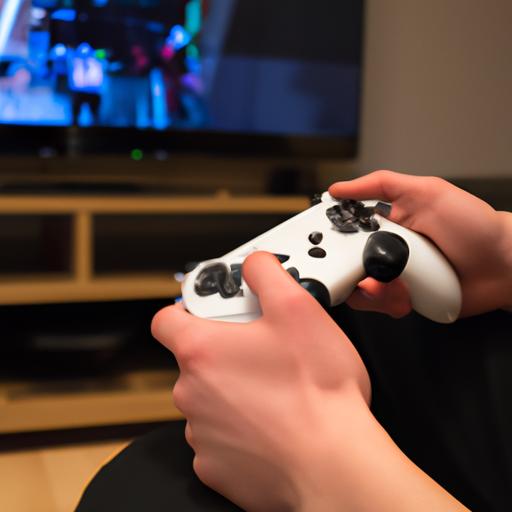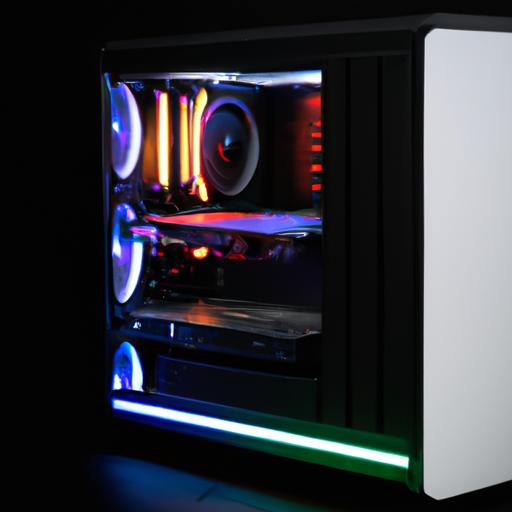Is Gaming a Sport? Unraveling the Debate
Gaming, a beloved pastime for millions, has become more than just a hobby. With the rise of competitive gaming, known as eSports, a heated discussion has emerged: is gaming truly a sport? Let’s dive into the world of gaming and explore this captivating debate.
Definition of Gaming and Sport
To embark on this journey, we must first define gaming and sport. Gaming refers to the act of playing electronic games, often on consoles, computers, or mobile devices. On the other hand, a sport traditionally involves physical exertion and skill, encompassing activities like football, basketball, and tennis.
Growing Popularity of Competitive Gaming
In recent years, gaming has experienced a meteoric rise in popularity. The advent of high-speed internet and advanced technology has transformed gaming into a global phenomenon. People of all ages and backgrounds now participate in competitive gaming, either as players or enthusiastic spectators.
Debates Surrounding the Classification of Gaming as a Sport
As gaming’s popularity soars, so does the debate over its classification as a sport. Supporters argue that the mental agility, strategic thinking, and lightning-fast reflexes required in gaming mirror the attributes found in traditional sports. They believe that the intense training and professional competitions in eSports make gaming a legitimate sport.
However, skeptics contest this notion, pointing out that gaming lacks the physical exertion and athleticism typically associated with sports. They argue that the term “sport” should be reserved solely for activities involving physical prowess.
Join me as we delve deeper into the characteristics of a sport and competitive gaming to gain a comprehensive understanding of this intriguing debate.
Characteristics of a Sport
Physical Exertion and Skill Requirements in Traditional Sports
Traditional sports are often associated with physical exertion and skill. Athletes engage in rigorous training to develop their physical abilities, such as endurance, strength, and agility. These physical attributes are crucial for excelling in sports like football, basketball, and swimming. The physical demands of these activities are undeniable, making them a prominent characteristic of sports.
Comparing Physical and Mental Aspects of Gaming
In contrast to traditional sports, gaming primarily focuses on mental rather than physical prowess. While physical exertion plays a minimal role, the mental aspects of gaming are paramount. Gamers must possess sharp cognitive abilities, including strategic thinking, decision-making, and problem-solving. The ability to analyze complex situations and react swiftly is crucial to achieving success in the gaming realm.
Role of Strategy, Coordination, and Reflexes in Gaming
Gaming requires a unique set of skills that include strategy, coordination, and reflexes. Gamers must develop effective strategies to outmaneuver opponents and achieve their objectives. The coordination between hand-eye movements and quick reflexes is vital for success, especially in fast-paced games where split-second decisions can determine victory or defeat.
In gaming, these cognitive and physical skills intertwine to create an immersive experience. The ability to think critically, adapt to changing circumstances, and execute precise movements in a high-pressure environment defines the skill set of a professional gamer.
As we explore the world of competitive gaming further, we will uncover the emergence of eSports as a professional industry and the arguments supporting gaming as a sport. Stay tuned to unravel the complexities of this ongoing debate.
Competitive Gaming: eSports
Emergence of eSports as a Professional Industry
In recent years, eSports has transformed from a niche interest to a booming professional industry. What was once considered a casual pastime has evolved into a highly organized and competitive arena. eSports tournaments now attract massive audiences, both online and in person, with millions of viewers tuning in to watch skilled players battle it out.
Professional Gamers and Their Training Regimen
Behind the scenes, professional gamers dedicate countless hours to honing their skills. Much like traditional athletes, eSports players follow rigorous training regimens. They practice for hours on end, refining their strategies, mastering game mechanics, and improving their reflexes. This level of commitment and discipline showcases the dedication and determination required to succeed in the world of competitive gaming.
Sponsorships, Tournaments, and Prize Pools in eSports
As eSports gains recognition, it has attracted major sponsorships and corporate investments. Companies see the potential in reaching the massive global audience of gaming enthusiasts. These sponsorships not only provide financial support to players and teams but also contribute to the growth and development of eSports as a whole.
eSports tournaments, akin to traditional sports championships, offer players the opportunity to showcase their skills on a grand stage. These events draw in players from around the world, competing for substantial prize pools. The allure of both fame and fortune has cemented eSports as a legitimate and highly competitive industry.
In the next section, we will explore the arguments supporting gaming as a sport, shedding light on the skills and similarities that blur the line between gaming and traditional sports.
Arguments Supporting Gaming as a Sport
Gaming as a Skilled Activity Requiring Practice and Dedication
One of the key arguments supporting gaming as a sport lies in the undeniable skill and dedication required to excel in the gaming realm. Like traditional sports, gaming demands countless hours of practice, honing reflexes, mastering strategies, and perfecting hand-eye coordination. Professional gamers undergo rigorous training regimens, constantly aiming to improve their skills and outperform their opponents.
Similarities between eSports and Traditional Sports
While gaming may not involve physical exertion on the same level as traditional sports, it shares several striking similarities. Both eSports and traditional sports require intense focus, quick decision-making, and the ability to perform under pressure. Just like athletes, professional gamers compete in high-stakes tournaments, striving for victory while showcasing their talents to a global audience.
Recognition of eSports by International Sporting Federations
The recognition of eSports by international sporting federations further supports the argument that gaming is indeed a sport. Organizations such as the International Olympic Committee (IOC) and the International Esports Federation (IESF) have acknowledged the legitimacy of eSports as a competitive activity. This recognition has paved the way for eSports to be included in prestigious events such as the Asian Games and the Southeast Asian Games, solidifying its position as a legitimate sport.
By highlighting the skill, dedication, and recognition of eSports, proponents of gaming as a sport continue to make a compelling case. Nevertheless, let us consider the counterarguments against gaming as a sport to gain a balanced perspective on this contentious topic.
Counterarguments against Gaming as a Sport
Absence of Physical Exertion in Gaming
One of the primary arguments against classifying gaming as a sport is the absence of physical exertion. Unlike traditional sports that demand rigorous physical activity, gaming is predominantly a sedentary activity. Critics claim that without physical movement and athleticism, gaming falls short of meeting the criteria of a sport.
Limited Physical Health Benefits Compared to Traditional Sports
Another point of contention is the limited physical health benefits associated with gaming compared to traditional sports. Sports like football, basketball, and swimming offer numerous advantages, such as cardiovascular fitness, improved stamina, and enhanced muscular strength. In contrast, gaming primarily engages the mind and may contribute to a sedentary lifestyle, potentially leading to health issues like obesity or musculoskeletal problems.
Lack of Standardized Rules and Regulations in Gaming
Opponents of gaming as a sport often highlight the absence of standardized rules and regulations. While traditional sports have established governing bodies and universally recognized rules, gaming lacks a unified framework. The absence of standardization can lead to controversies, disparities in competition formats, and difficulties in determining fair play.
As the debate rages on, it is crucial to consider these counterarguments against gaming as a sport. While gaming undeniably requires skill, strategy, and dedication, the absence of physical exertion, limited physical health benefits, and lack of standardized rules pose significant challenges to its classification as a traditional sport. Let us now explore the final section to bring our discussion to a thought-provoking conclusion.
Conclusion
After exploring the intricacies of the “is gaming a sport?” debate, it is evident that opinions remain divided. While gaming shares some similarities with traditional sports, such as skill, strategy, and intense competition, it lacks the physical exertion and athleticism commonly associated with sports.
Proponents argue that gaming’s mental demands and the professional ecosystem of eSports justify its classification as a sport. They highlight the dedication, practice, and teamwork required to excel in the gaming world. Additionally, the recognition of eSports by international sporting federations further solidifies its standing as a legitimate sport.
On the other hand, skeptics maintain that physicality is an essential component of sports, and gaming fails to meet this criterion. They emphasize the importance of physical exertion and the health benefits associated with traditional sports.
Ultimately, the classification of gaming as a sport may be subjective, as it depends on one’s perspective and interpretation. The evolving landscape of sports and the growing influence of gaming necessitate an open-minded exploration of what defines a sport.
Whether gaming is deemed a sport or not, there is no denying its profound impact on society. It has brought people together, fostered a sense of community, and provided countless hours of entertainment. As the gaming industry continues to flourish, let us appreciate the unique qualities gaming brings to the table, regardless of its official classification.
So, what are your thoughts? Is gaming a sport? The answer lies in the eye of the beholder, and the debate rages on.






